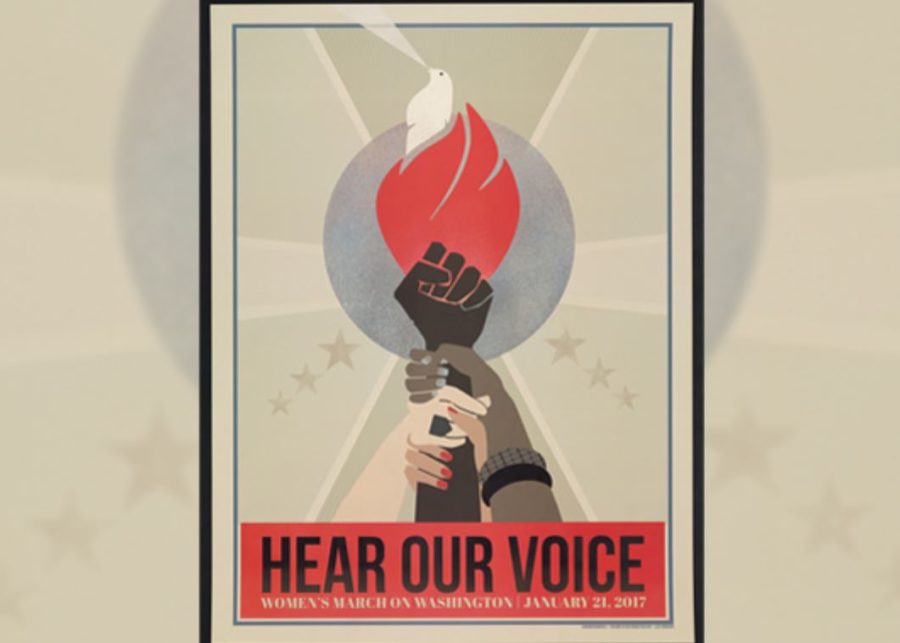March is Women’s History Month; a month that commemorates the impact that women have had not just on history alone, but also the contributions that women have made and still make to improve society as a whole.
While calendars recognize that March is Women’s History Month, most people don’t know it exists. Personally, I only found out that it was Women’s History Month because I saw it on Google calendar.
Despite learning about the historical contributions of women in school such as the Women’s Suffrage, and the growth of the feminism movement, women’s history is often forgotten. We as women are not recognized enough for our accomplishments and often don’t receive the same treatment and recognition that men do.
Throughout historical discussions, it’s seen that people mostly discuss men’s successes in history. We spend years learning about male historical figures such as George Washington, Isaac Newton, Martin Luther King Jr., etc, but why can’t the same attention and recognition be given to the achievements of women throughout history? Women’s successes are rarely talked about in history classes.
This isn’t just a broad statement. These are facts. After analyzing the K-12 educational standards for each of the 50 states, 2017 conducted by the National Women’s History Museum showed that out of 737 specific historical figures studied in schools, 559 men were men and 178 were women. Upon further examination, Fifty-three percent of mentions of women’s history fall within the context of domestic roles, with women’s rights and suffrage making up only 20 percent of the mentions.
A few examples of women who aren’t recognized enough in history are Ida B. Wells, Selena, and Sojourner Truth.
Ida B. Wells was a co-founder of the National Association for the Advancement of Colored People, which is an association that works to stop racial discrimination and prejudice.
Selena’s story is one I hold close to my heart. Selena opened the door for women of color in the music industry, specifically Latina women. She overcame the struggles of being a woman of color in a male-dominated industry. She was constantly belittled and discriminated against in the music industry due to being a Mexican woman.
While being in the industry, Selena was able to create a space in which other Latina women could also succeed in the music industry. She incorporated her culture and constantly spoke Spanish in her songs, and even incorporated cultural dances such as Cumbia. She paved the way for other women of Latino descent and made music for a variety of people that is still listened to today.
Sojourner Truth was an abolitionist and women’s rights activist, who was the first African American woman to successfully sue a white man in court. After the anti-slavery laws were passed in New York, John Dumont illegally sold Sojourner Truth’s son, Peter. In 1828, she was able to win her lawsuit in court against Dumont and regain custody of her son.
Women have had a huge impact on history, no matter how small the world may make their accomplishments seem. Margaret Sanger invented birth control and wrote about sex education. Throughout her life, she fought to make sure these resources were available to the public. Her invention and writings allowed people to become informed about how to prevent pregnancy, which affects everyone. These historical events don’t only affect other women, but they affect people as a whole.
There is rarely acknowledgment of women’s accomplishments in history, but in the one month of the year in which they are supposed to be recognized, it seems like people don’t even care.
Only one out of my six teachers have actually taught a lesson based on Women’s History Month, and even then, it was very brief.
You would expect that my history teacher would be the one to teach a lesson on women’s history, but shockingly my Spanish teacher was the only one to provide a lesson. In class, we read an article that explained why this month is celebrated and it spoke about specific women who made a great impact in Latin America.
I firmly believe that lesson plans like this should be taught in other classes, especially in history. Why is it that most of our history lessons are on men when women were making significant historical impacts during the same era as well? Think about the message are we sending to our future generations by teaching history lessons that are often male-dominated.
Women have been put through hell for years now and the fight still isn’t over. People are scared of normalizing the importance of strong women because it prompts young girls to believe they can accomplish the same things, which they can.
Women weren’t allowed to learn to read for years because an educated woman scared the common man. Showing representation of important WOC, queer women, and more would help normalize the act of looking up to a strong female figure, no matter their gender.
I don’t blame people for not knowing March was Women’s History Month, but it’s frustrating to me that women’s history is underrepresented and often overlooked.





Julie • Mar 24, 2022 at 1:40 pm
let’s go women!!!